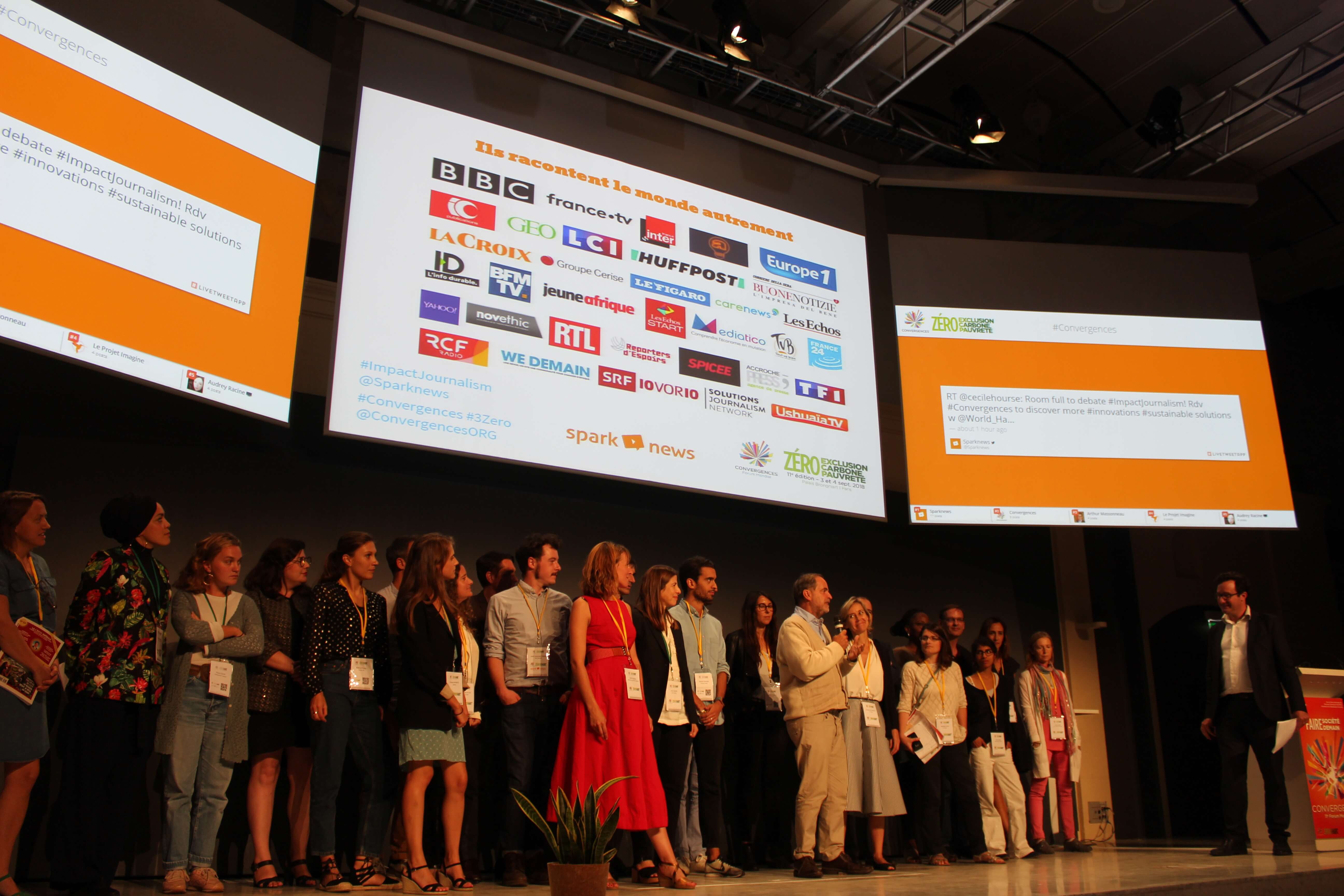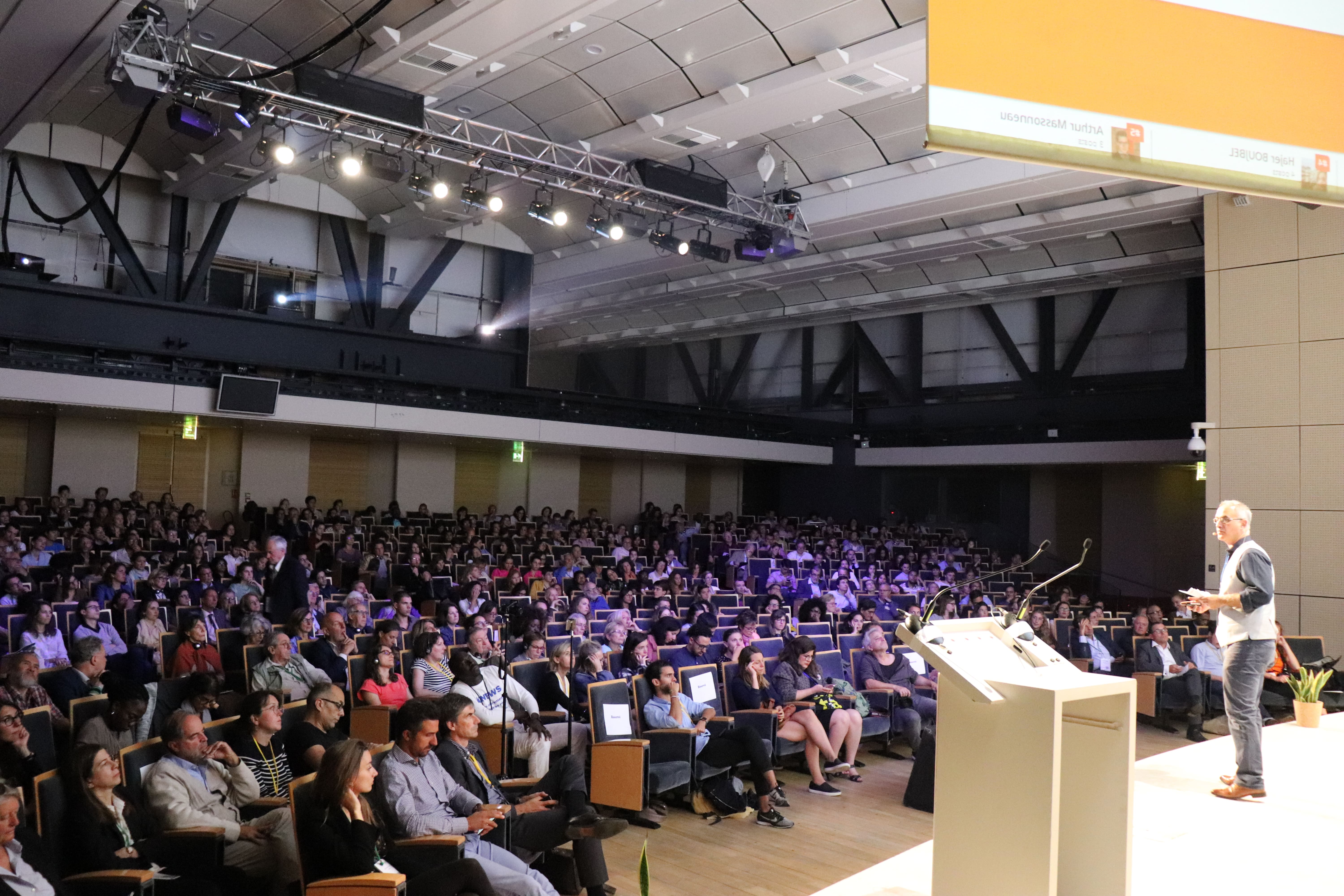
Three acclaimed European media reporters came to deliver their experience of impact journalism to over 700 people at the event “How Do the Media Contribute to Changing the World?” at the Convergences World Forum, to show that it works.
Impact journalism works! This was the Sparknews’ message – which, in this event – focused on impact journalism and had invited French and European pioneers of the field. Convergences World Forum‘s 11th edition was the occasion for over 700 people meet three journalists from heavyweights of the European media: BBC‘s Alison Gee (public TV and radio broadcast in Britain), SRF‘s Pasquale Ferrara (Swiss public television) and the Corriere Della Sera‘s Elena Comelli (the principal daily newspaper in Italy). A sign of the changing times and of the press opening up to new treatment of information.
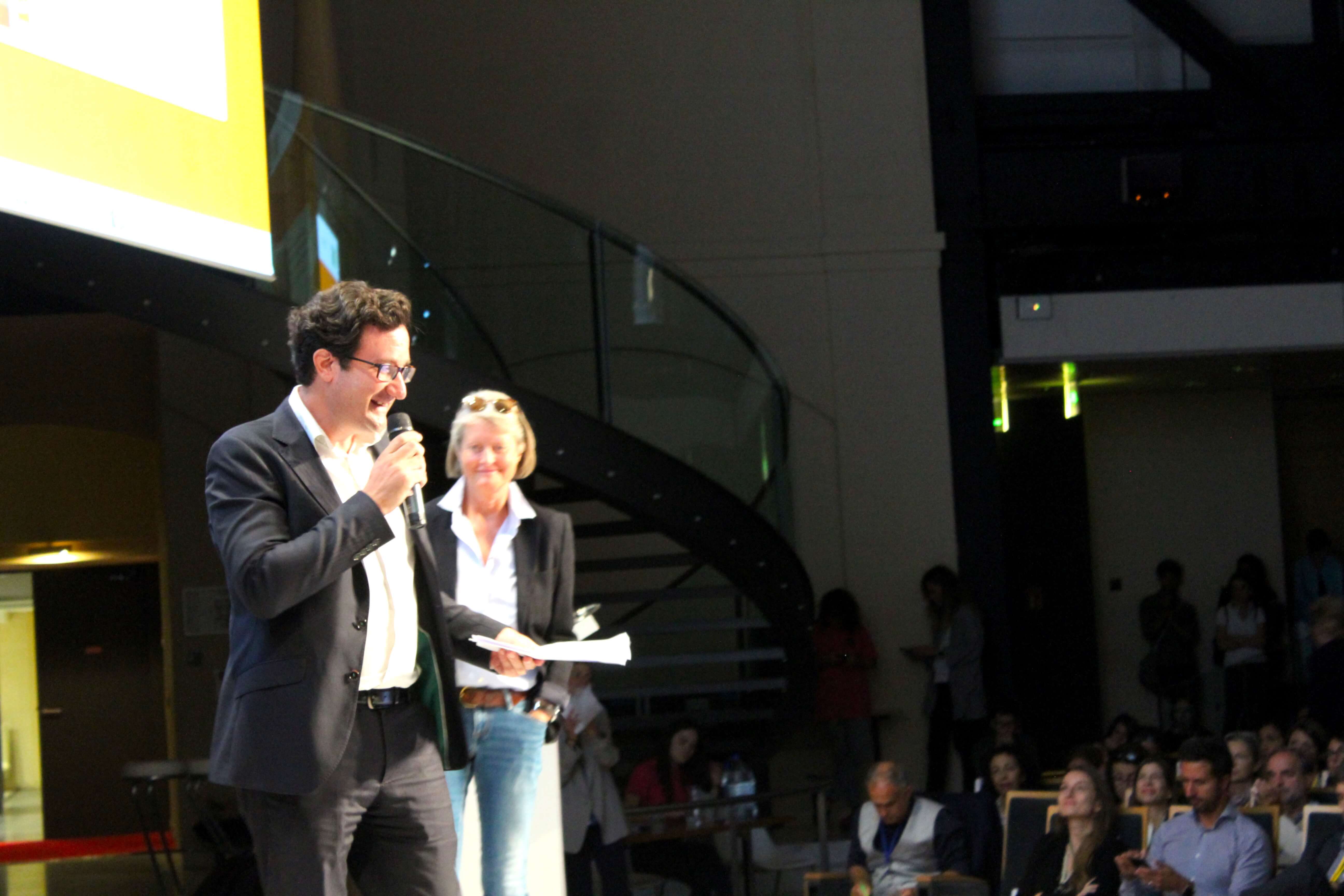
“Why impact journalism? […] Frequently, people, which you may be part of, have the perception that the media air mostly bad news […] people consider that the media are too negative. There are many wonderful projects that the media could relay”, Christian de Boisredon, Sparknews’ founder said during the event opening. Sparknews supports initiatives of media coalitions like Impact Journalism Day – presented by SRF in the video below.
#ImpactJournalismDay in 10vor10.
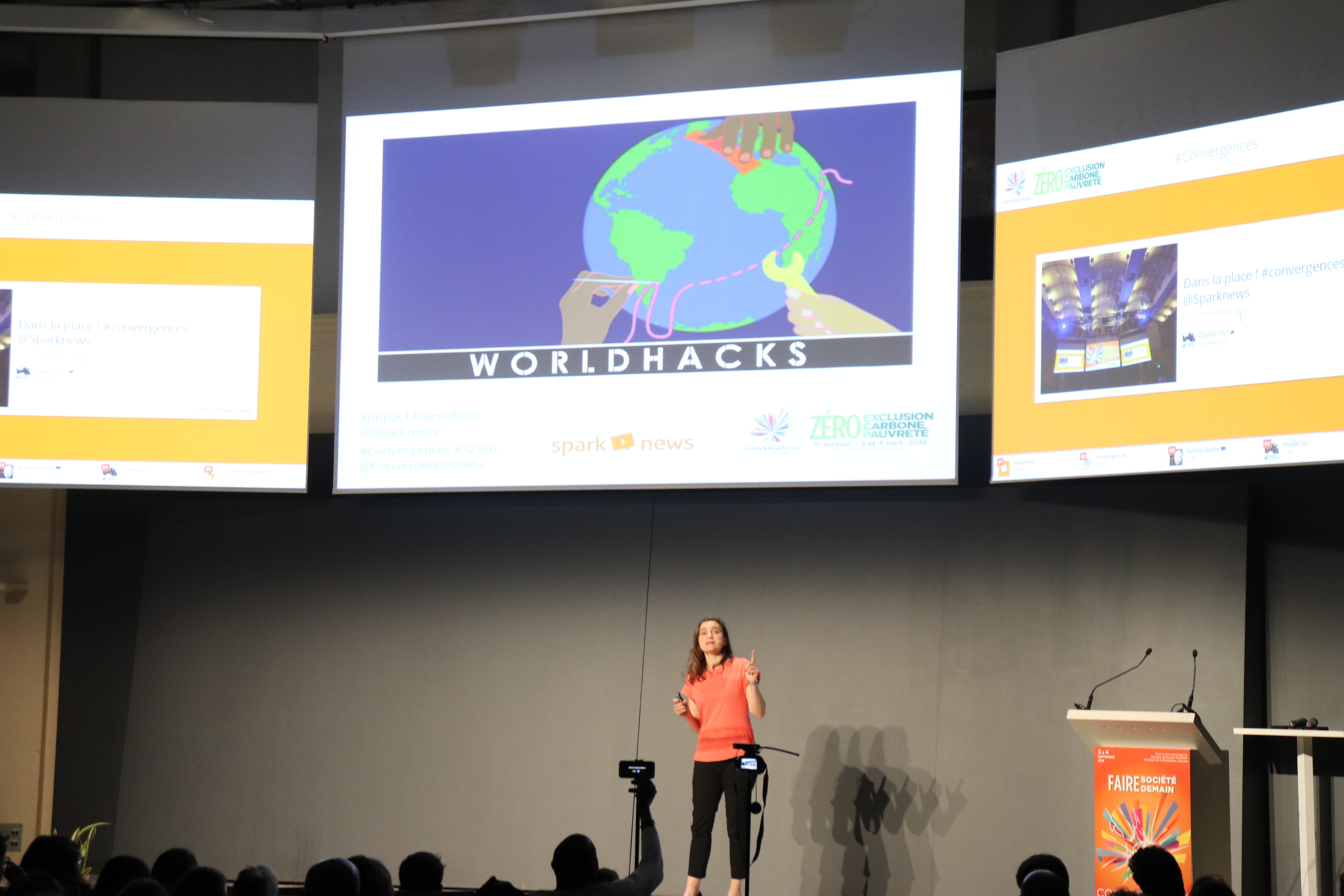
Emilie Poisson, executive director of Convergences, asked the question: is it the role of journalists to find solutions to societal and enviornmental challenges? The evening showed that they could talk about them more often. An exemple that has done it is 10Vor10, SRF’s prime time news program. It has covered from yoga classes in Argentinean jails to prevent violence to the South Korean startup employing North Korean refugees to recycle automotive materials into suitcases.
World Hacks: Scanning homeless people to donate money.
For Pasquale Ferrara taking a step back is crucial in deciding whether a topic is treatable by its show. Christian Dütschler’s involvement – the editorial director of 10vor10 – is critical to him. Alison Gee, from the BBC World Hacks, also gave honest testimony about the clarity needed to deal with a topic. Some solutions can make one uncomfortable, and that’s okay. The problem is to identify which ones they are, their limits, their failures or the flaws of an idea, the journalist indicated. In particular, she highlighted a report on the scans of homeless people and the controversy it triggered.
It is necessary to engage the critical sense of the journalist so that it remains journalism in its own right. Is impact journalism? According to Pasquale Ferrara, it is, provided there are three essential ingredients: a critical retreat from the solutions found, fact-checking, and no fear of controversy.

In a profit-seeking logic that does not spare the media, impact journalism has the potential to re-involve the readership.
The Corriere della Sera (2 million printed copies daily in Italy) launched Buone Notizie on Elisabetta Soglio’s initiative, who, since then, has become the editor-in-chief of this weekly supplement. Thirty pages on social entrepreneurship, corporate social responsibility and plans for the future does have a critical view of society. With highly satisfying results. The newspaper records 10,000 additional sales each Tuesday, the supplement’s release day. It’s advertising pages are fought over by companies such as Bayer, Philips, Alliance, ENI or ENEL.
Despite the existence of a large readership, responsive to this type of publication, Elisabetta Soglio encountered initial difficulty in convincing the former publisher and her colleagues of the viability of her project.
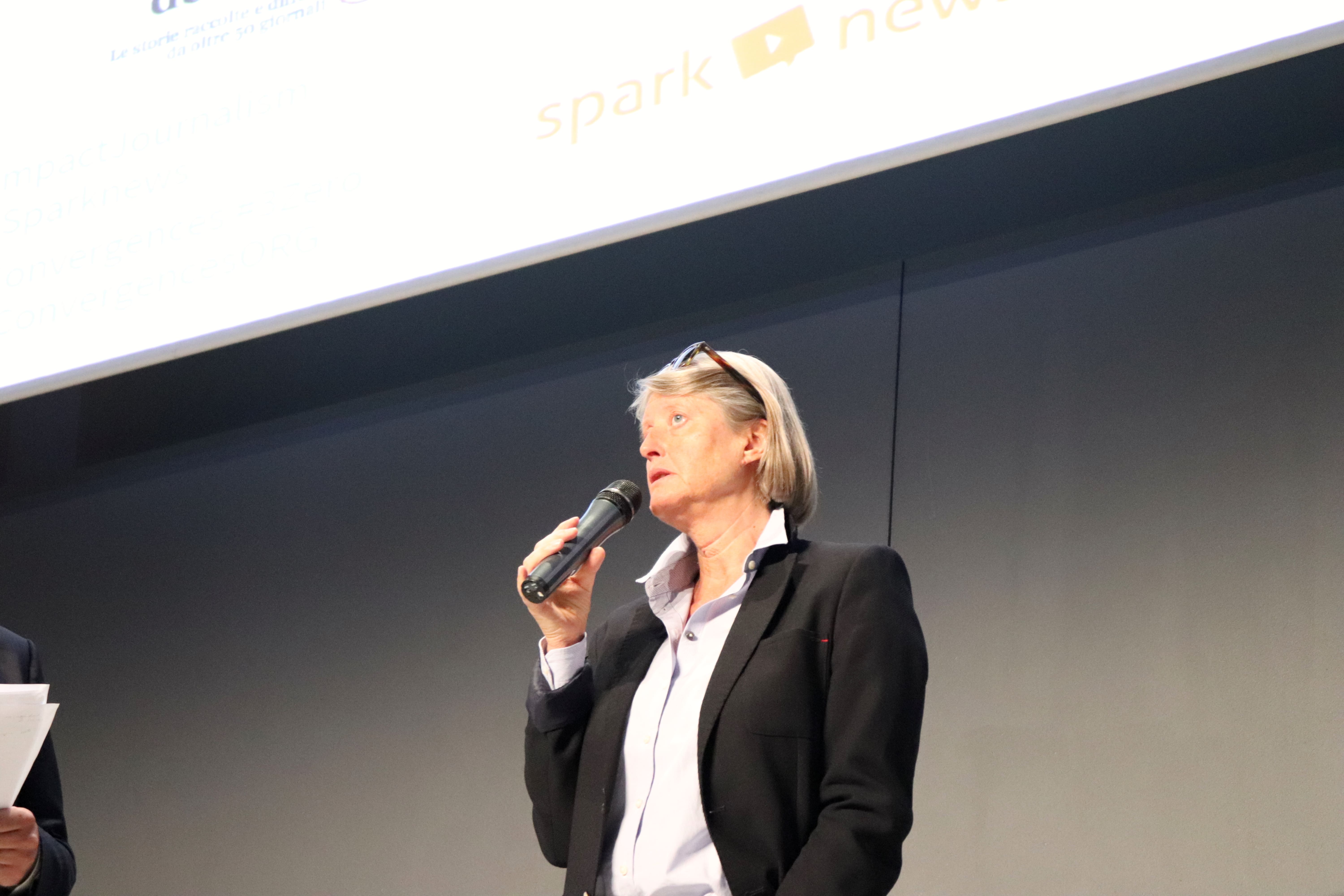
Italian journalist Elena Comelli reminded the audience that one-eighth of her country’s population volunteered on a consistent basis and participated in the circular economy. This audience, itself engaged and informed, is demanding for new modes of information.
“43% of the French thought that the media did not speak enough about climate change”, Valérie Martin, ADEME ‘s (the French Environment and Energy Management Agency), communication manager said. “We need to increase the multiplication and sharing of these initiatives,” she emphasized about impact journalism. For Alison Gee, young people especially, are demanding a constructive approach to information. Today’s generation doesn’t only want to hear about issues, but also about solutions,” she highlighted.
However, Pasquale Ferrara’s experience underlines that impact jurnalism doesn’t touch exclusively the young generation. Among hundreds of encouraging messages received by SRF’s editorial team, the handwritten letter from an octogenerian has particularly touched him. “Friday’s program was very interesting and a real reserve of ideas. (…)I know we shouldn’t turn a blind eye on war, global hunger, violence, but these negative messages can paralyze or stop us. There is a lot of positive happening around us, it is important to talk about it more often than only on Friday nights. Please, keep doing it!”.
Whether the reasons are generational, social or individual, an increasing proportion of the population expresses frustration with the incompleteness of current information and appears to be demanding for a more constructive approach.
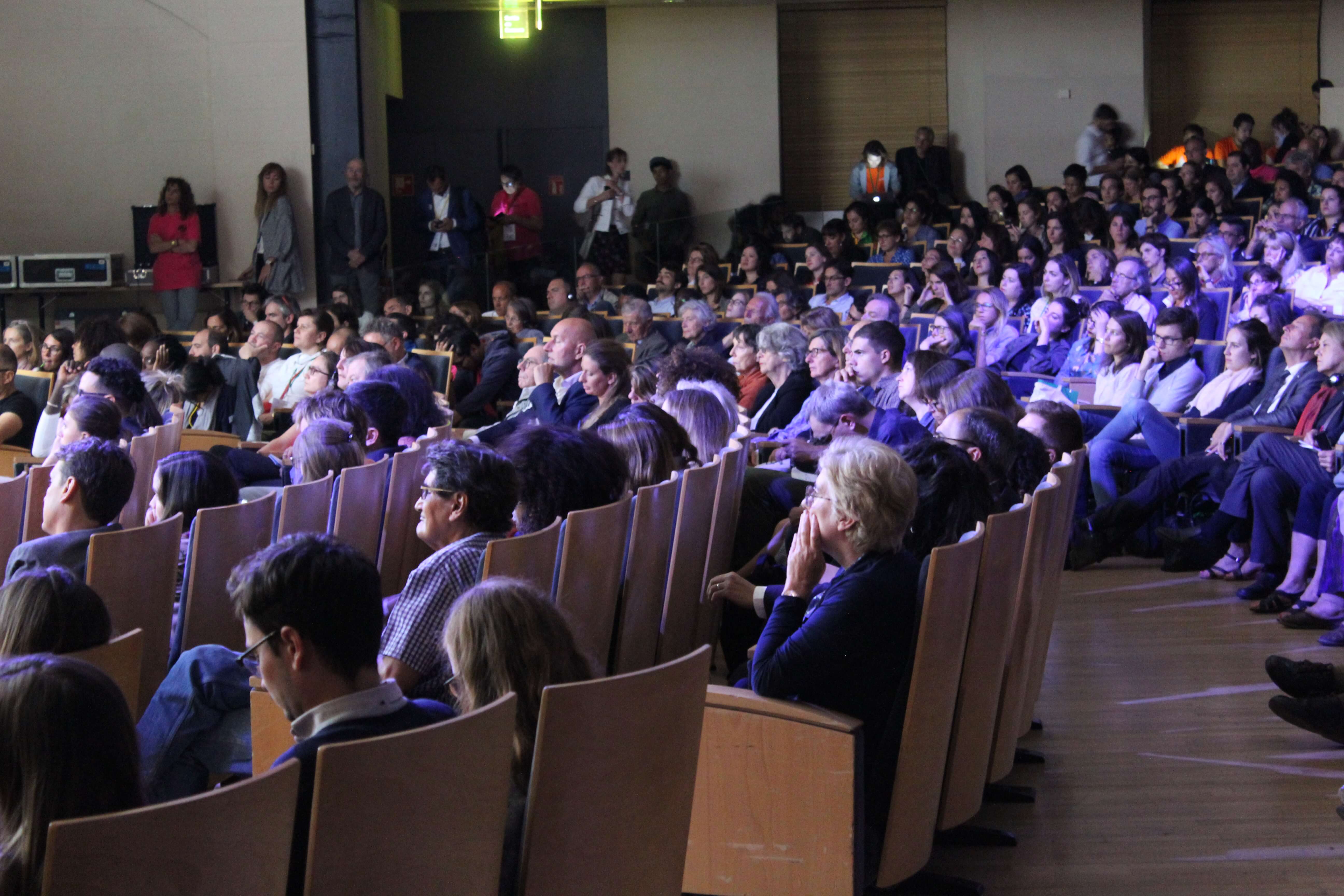
With an audience composed of journalists and people from other professional paths, this evolution of journalism has brought hope. яндекс In the room, professionals from the journalistic field, but also academics shared their views on the event.”It was interesting and promising to meet journalists who are wondering about their job and are about to renew the way they approach and share economic and societal information”, Yuri Biondi, a researcher at CNRS, confessed.
Christian de Boisredon called thirty French journalists on stage at the end of the evening. They had been previously invited to take part in a workshop before the event. They had been questioned on how to deal with anxiety-triggering issues such as migration, climate change, and mental health through the prism of impact journalism. Among them were precursors of impact journalism in France such as Emmanuel Moreau, founder of the L’Esprit d’initiative on France Inter, Caroline de Malet, head of Figaro Demain, or Sylvia Amicone, the creator of the podcast Impacts Positifs.
#3 – Cyril Dion – “DEMAIN”, the César-award-winning documentary that opened the world’s eyes on an issue.
The corporate world was also represented: Pernod Ricard financed the evening, and many communicators and CSR executives were in the room.
